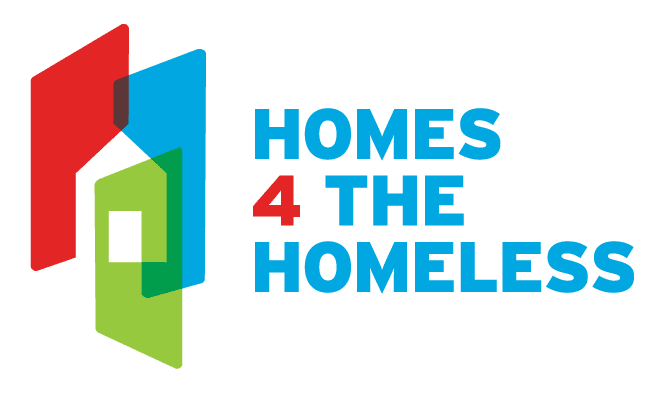Breaking Myths, Building Bridges
In our everyday lives, judging others based on appearances is easy. This tendency is particularly damaging regarding perceptions of homelessness. To truly address the challenges the unhoused face, we must look beyond surface judgments and delve into their real struggles. There’s also a pervasive damaging belief, that homelessness is a choice, a lifestyle someone willingly opts for. Based on this misguided understanding, regions pass “anti-homeless” legislation, criminalizing basic human actions like sitting or spending time in public spaces. Many attribute homelessness to personal failure, suggesting a lack of worthiness for assistance. This view is both damaging and incorrect. Recognizing these factors is crucial in fostering a compassionate approach and breaking the cycle of homelessness.
Myth: People actively choose to be homeless.
Fact: People don’t wake up and decide, “Today, I want to be homeless.” A tangled web of circumstances and barriers often leads to this challenging life event. Some predominant reasons are:
- Loss of a job.
- Evictions: Often, without warning, people are left without a place to call home.
- Affordable Housing Crisis: The rising living costs and lack of affordable housing options push many out of their homes.
- Health Issues, Mental Illnesses, or Addictions: Challenges like these can make securing and maintaining a stable living situation arduous.
Myth: Ample and adequate services exist for the homeless population.
Fact: While many services exist, they predominantly offer immediate relief, like shelters and food. Communities need to address root problems because, while helpful, temporary fixes don’t help break the cycle of poverty and homelessness. A broader perspective is required to tackle systemic issues, notably the affordable housing crisis and counterproductive laws that make homelessness harder to escape.
Myth: They’re Lazy and Unwilling to Work. One prevalent myth is that homeless people are lazy.
Fact: Contrary to this stereotype, research shows that a significant portion of the homeless population is employed, challenging the belief that homelessness equates to laziness. Maintaining a job while homeless is challenging. Despite the myth that individuals can escape homelessness through sheer will, they face numerous obstacles such as employment gaps, no permanent address or phone, criminal records, lack of identification, restricted internet access for job applications, maintaining a clean appearance, low credit scores, disabilities, and transportation issues. The daily struggle for survival, encompassing the search for food, water, bathrooms, safe sleeping spots, and avoiding arrest, consumes their energy and focus, preventing them from pursuing opportunities to stabilize their lives.
The emotional toll of homelessness can be overwhelming, fostering feelings of fear, frustration, and constant fatigue. This daily struggle impedes progress, with stress and depression further clouding judgment and sapping energy. Extending compassion rather than clinging to negative stereotypes about the unhoused is crucial to creating positive changes around this issue.
A Bigger Battle Against Prejudice and Misunderstanding: Homelessness is more than a lack of shelter; it’s a fight against stigma, prejudice, and misunderstanding. Misconceptions like “You’re uneducated” or “You’re worthless” further marginalize those experiencing homelessness, making support and opportunities harder to access.
The Housing First Approach provides immediate access to permanent housing without prerequisites like sobriety or employment. Research shows it’s more effective to stabilize a person’s housing situation first and then address other issues.
Homelessness Has a “Look”
Stereotyping people experiencing homelessness based on appearance is another deep-rooted misconception. Homelessness is often hidden, with many individuals living temporarily with friends or in vehicles, invisible to the general populace. This phenomenon impedes accurate data collection and resource allocation. Abandoning stereotypes and addressing implicit biases can pave the way for more inclusive solutions.
Prevention Programs: Assisting those at risk of becoming homeless due to economic hardships, evictions, or other crises can prevent homelessness from occurring in the first place.
Mental Health and Substance Abuse Services: Offering accessible treatment options can help many of those who are homeless due to such challenges.
Job Training and Employment Services: Providing people without housing with skill development and job placement can help them gain economic stability.
Legal Aid: Many homeless individuals face legal challenges, from evictions to unpaid fines. Legal assistance can help them navigate these issues.
Integrated Support Services: This includes healthcare, counseling, and social services. These supports help address the underlying causes of a person’s homelessness.
A Personal and Human Perspective: Peer-to-peer specialists and others who have journeyed through homelessness offer insights into a world many don’t understand. Their experiences underscore the notion that homelessness doesn’t discriminate and isn’t a choice. Housing the chronically unhoused isn’t just about providing shelter. It’s about understanding the intricacies of their lives, especially when they’ve been on the streets for extended periods. When someone who has walked a similar path reaches out, the bridge of understanding is built more quickly. Bonds forged between individuals with shared histories of homelessness or struggles with substances can build trust. These peers aren’t just support workers. Their narratives inspire residents and provide insight. In this journey, emphasis is placed on empathy, conflict resolution, and community mediation skills.
A Call to Action: We must open our hearts and minds to the reality of unhoused people by acknowledging the various factors contributing to homelessness, such as economic instability, mental illness, societal rejection, and lack of proper medical help. We must strive to foster a compassionate, accountable, and inclusive society.
All of us can play a role in dismantling these stigmas and building bridges. By taking the time to understand the multifaceted challenges faced by those experiencing homelessness, we can transcend the boundaries that divide us, transforming the lives of those most in need. By doing so, we draw closer to creating a compassionate, accountable, and inclusive society.


